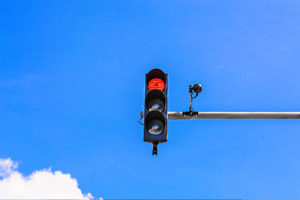 They’re becoming popular across the United States. Law enforcement offices are setting up cameras at strategic points to catch motorist who violate the law. Some have built in radars and will take a picture of the vehicle’s license plate. The driver then gets an unpleasant surprise a few weeks later when a traffic citation arrives in the mail.
They’re becoming popular across the United States. Law enforcement offices are setting up cameras at strategic points to catch motorist who violate the law. Some have built in radars and will take a picture of the vehicle’s license plate. The driver then gets an unpleasant surprise a few weeks later when a traffic citation arrives in the mail.
That won’t happen to you in New Jersey. As the law currently stands, cameras are prohibited from being used to issue ticket for speeding or running a red light. However, both New York and Pennsylvania allow some form of the practice.
It may seem like there’s not much you can do to challenge a traffic violation that’s been caught on tape. However, there are some pretty simple ways to fight this type of citation:
- It’s unusual for a prosecutor or police officer to bring a video or picture of the traffic violation to court. If there’s no picture or video, there’s no evidence, other than the testimony of the police officer who viewed the video/picture. The failure to bring the video or picture will typically, in itself, be sufficient to have the charge dropped.
- Furthermore, under the rules of evidence, a witness cannot testify to something he or she didn’t actually see. If the testimony is based entirely on what a third person saw, it’s known as “hearsay” and inadmissible in court. If the tape is brought to court and a police officer seeks to testify, you can object to the testimony as “hearsay,” because the officer didn’t see you commit any wrongful act. He or she is relying on the observations of a third party, i.e., the video camera.
Contact Attorney Edward M. Janzekovich
To schedule a free initial consultation, contact my office online or call me at 732-257-1137. Evening and weekend consultations are available by appointment. I accept all major credit cards.


